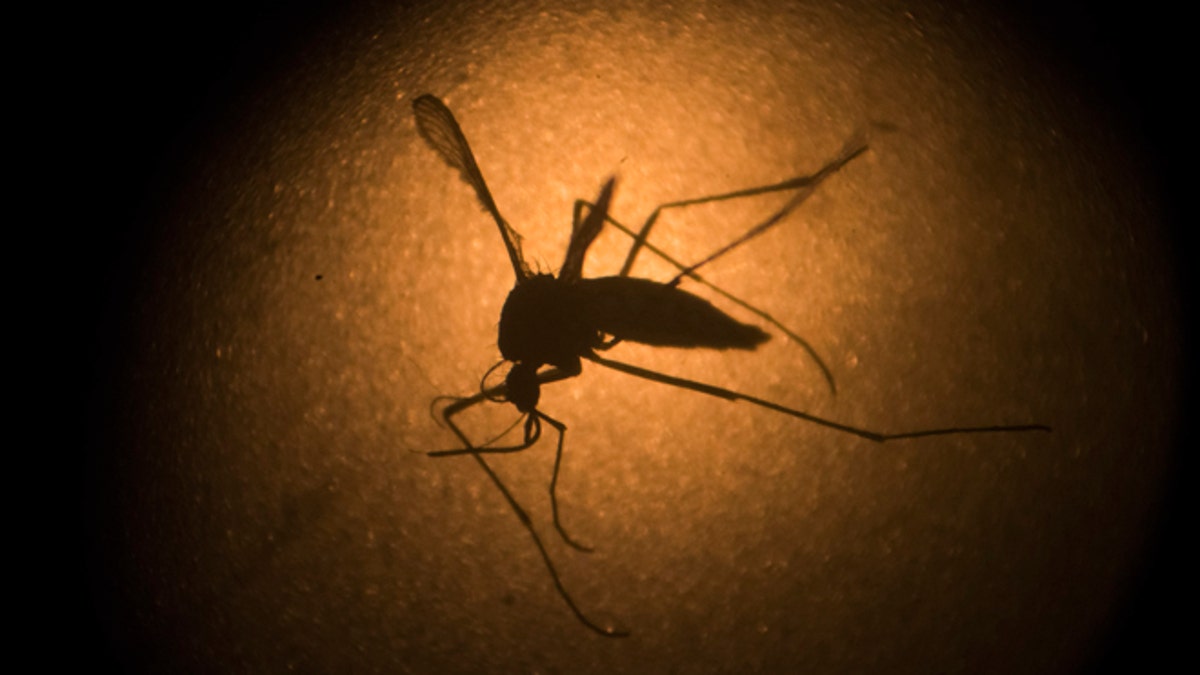
FILE - In this Jan. 27, 2016, file photo, an Aedes aegypti mosquito is photographed through a microscope at the Fiocruz institute in Recife, Pernambuco state, Brazil. The mosquito behind the Zika virus seems to operate like a heat-driven missile of disease. Scientists say the hotter it gets, the better the mosquito that carries Zika virus is at transmitting a variety of dangerous illnesses. (AP Photo/Felipe Dana, File) (ap)
Although we’re still outside of peak mosquito season, the Zika virus already has enough media traction to ensure a prominent position among the summer’s headlines. Despite its explosive spread, polls show that Americans are less worried about the potential epidemic than any number of other threats, leading Congress to put it on the back burner.
How do we get lawmakers, administrators and the public in general to care more about a pending epidemic that has benign health consequences for most of us? Perhaps we should emphasize the impending harm in the one place where we all take notice: the pocketbook.
Zika may not be able to compete with the threat of ISIS (or a new president), but the prospective economic implications should make us all pay a little more attention.
No matter where you live in the country, there’s still good reason to be concerned about the health consequences of contracting Zika. Although it may not have the terrifying physical effects of Ebola Zaire, links to infant deformity – or even death – should give us reason to take a little extra precaution. But, as most carriers show no symptoms and those who do barely crack a fever, the Centers for Disease Control is having a hard time convincing us to be cautious enough to inhibit its spread.
So, how do we get lawmakers, administrators and the public in general to care more about a pending epidemic that has benign health consequences for most of us?
Perhaps we should emphasize the impending harm in the one place where we all take notice: the pocketbook. The World Bank, for example, recently noted that Zika’s cost to Latin America is expected to reach $3.5 billion in 2016, or roughly 1 percent of affected countries’ GDP.
A 1 percent hit doesn’t sound like a lot, but consider that such a decrease could halve many countries’ expected growth this year, or even send some into recession.
Puerto Rico is already having a rough enough year; Zika is the last thing it needs to worry about. Nearly a decade of economic disappointment and fiscal mismanagement have led to a couple of major debt disasters that are expected to climax alongside Zika this summer.
Regardless of whether its health effects are worth the stress, Zika’s reputation may just be bad enough to make this one of the worst summers on record for the poor island.
Strangely enough, Puerto Rico’s long ill-advised decision to not develop its tourism sector may actually pay off in the battle against Zika. With less than 10 percent of the economy dependent on tourism, even a catastrophic hit may not cause the grand loss that would otherwise be expected.
In fact, similar outbreaks had little or no significant effect on tourism. For example, dengue fever exploded on the island in 2010, 2012, and 2015, but hotel registrations increased year-over-year each time. Chikungunya virus, whose symptoms include weeks-long severe body pains, made national headlines in 2014, but it’s almost as hard to find a notable impact on tourism as it is to find someone who can pronounce it.
However, tourism sector estimates don’t begin to incorporate what economists deem the real costs of a major epidemic. Take the recent decision by Major League Baseball to cancel a couple of games in Puerto Rico due to players’ concerns about Zika, as just one example. Local neighborhoods will feel the direct effects, but including those who choose not to patronize crowded bars, restaurants and shopping centers, along with the costs of mitigating the disease, and the real costs of Zika can pile up pretty quickly.
If you think Zika’s price can be confined to the Caribbean, you’ve had too many Cuba Libres. Cases of Zika are beginning to spring up across the United States brought on by those traveling from infected regions. Puerto Ricans, who are American citizens free to travel throughout the U.S., will add Zika to their list of reasons for choosing a new home on the mainland. Local and national legislators should expect an even greater influx of people seeking aid and healthcare.
It’s tempting to give Washington the benefit of the doubt, assuming that there must not be anything they can do to stop Zika, or else our leaders would have done it. The reality is that our nation’s capital is once again stalled by politics and stymied by incompetence.
As an example, Brazil successfully tested and implemented a novel approach that releases genetically engineered mosquitos into affected areas to decrease mosquito populations. D.C.’s response to the program’s success? The FDA has sat on applications for testing the same methods in the U.S. for years, as some are now suggesting that it might not be able to approve a similar solution due to it countering a regulation prohibiting the use of drugs that are not safe for the animals injected with them.
We want to get rid of mosquitos while by-the-book bureaucrats may be required to save them.
While the administration’s answer is to beg for more money, Congress debates how much to give them and when, and the FDA and other administrators sit around and wait, the rest of us are stuck considering and feeling the real costs of Zika that are already affecting struggling local economies around the country.
Although most of us haven’t felt its effects yet, if left unmitigated, Zika has the potential to substantially impact not just our health, but an already tenuous national economy.
